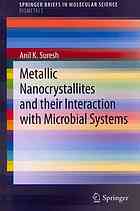

Most ebook files are in PDF format, so you can easily read them using various software such as Foxit Reader or directly on the Google Chrome browser.
Some ebook files are released by publishers in other formats such as .awz, .mobi, .epub, .fb2, etc. You may need to install specific software to read these formats on mobile/PC, such as Calibre.
Please read the tutorial at this link: https://ebookbell.com/faq
We offer FREE conversion to the popular formats you request; however, this may take some time. Therefore, right after payment, please email us, and we will try to provide the service as quickly as possible.
For some exceptional file formats or broken links (if any), please refrain from opening any disputes. Instead, email us first, and we will try to assist within a maximum of 6 hours.
EbookBell Team

4.1
30 reviewsAlthough interactions between nanoparticles and microorganisms in the environment are unavoidable and commonplace, it is still not clear what potential effects they may have. Metallic Nanocrystallites and their Interface with Microbial Systems not only illustrates how microbes and these particular nanoparticles interact but also it describes the consequences of these interactions. This brief discusses the impact of gold, silver, zinc oxide, and cerium oxide nanoparticles on the growth and viability of both Gram-negative and Gram-positive bacterium. Moreover, it analyses the relationship between bacterial growth inhibition, reactive oxygen species generation, the regulation of transcriptional stress genomes, and the toxicity of these materials. Finally, it reviews the specific metallic nanomaterials and highlights their modes of synthesis, reactivity at surfaces, and the importance of assay procedures in determining their toxicity levels. Various microscopy techniques used to determine their mechanisms of action are also presented. Metallic Nanocrystallites and their Interface with Microbial Systems will be a valuable source to the scientific and industrial community as well as to students and researchers in microbiology, biotechnology, nanotechnology, toxicology, materials science, biomedical engineering, cell and molecular biology.